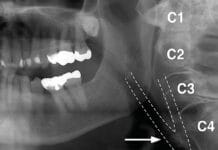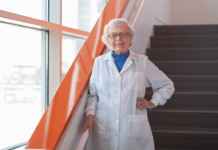I recently thoroughly enjoyed an in-person, two-day course in the dental world ‒ no other word to describe it, but marvelous. I called my husband after the first day and said I hadn’t felt this jazzed in a long while. When I went to the course, I was coming back from one of the most difficult events of my adult life and was not in a good head space.
Afterward, I wondered why this event made me feel so revived. I only knew one person upon arrival, so it couldn’t have been hanging out with my own “posse” that gave me all the warm feelings. Was it the smaller atmosphere? Did I jam on incredible content?
When I dug in to uncover the “why,” it was incredibly basic. I felt accepted.
Continuing education took a dramatic turn during COVID and moved to the virtual platform. There are pluses and minuses. It’s less expensive, no travel, and a variety of courses in one place. While it’s convenient to sit in your jammies with a cup of joe to learn from experts, it lost some connection. As a speaker, it’s challenging too. You can’t feel the audience through a screen or engage them quite the same. Eye contact is out the window, and I think my jokes fall flat because they’re not in-person, not because the jokes are bad.
I started attending in-person conferences when they resumed last year. The novelty of being in person again was exciting. However, the small conference where I felt accepted was quite different. Granted, smaller is usually more intimate, but a conference I attend regularly is smaller, and I have never gotten this feeling before. As a matter of fact, I feel the opposite. After all these years in attendance, I genuinely have never felt included or valued as an attendee.
Acceptance
Feeling accepted is a human need. It isn’t just about confidence in your own skin and wanting to be liked; it’s way more than that. Social scientists have long recognized the critical function relatedness plays, whether during infancy when bonding and attachment are so crucial or the central role of being involved in the lives of others.
This is also in play for the elderly. The emotional effects of aging are mostly positive. Older adults tend to be more emotionally stable and focus on the good things in life. Belonging and acceptance evolve across a lifespan and are intricately woven with close family and friends. In the older community, they may live alone, become more isolated and lonely, and feel left out, but their needs are still the same.
The recruiting tool for sinister cults and gangs plays directly into acceptance. Cults usually refer to a social group defined by its religious, spiritual, or physiological beliefs and shower members with attention and praise ‒ what we now call love-bombing. They prey on people who have been neglected, abused, and emotionally vulnerable.
In Abraham Maslow’s Hierarchy of Needs, the need for a sense of love and belonging is just above the need for physical safety. Joining a gang, by definition, means being a part of a cohesive group with a shared identity that can fill the need for love and belonging.
Kandice Swarthout, a licensed professional counselor and dental hygienist, explains, “Acceptance plays such a vital role in our mental health. Being in a community is necessary for wellness, and when we truly feel accepted by that community, we thrive. Acceptance is about belonging, where we are accepted for who we are. We can interact without feeling judged or self-conscious about being authentic.”
Every day, we have a barrage of rejections and feelings of being unaccepted or unheard ‒ some minor, some major. In our work environment, if you have a great idea about workflow, the eye rolls you receive would make a teenager proud. How about the clinical staff heading out for lunch, and you aren’t asked to go? For me personally, I try to tell myself, “I just may not be their cup of tea.”
Our Patients
How can this relate to our patients? It’s important that we meet and accept our patients where they are. We may make assumptions or disagree with what they say or how they live their lives, but it isn’t productive.
A focus in our world recently has been on implicit bias, which involves associations outside our conscious awareness that lead to a negative evaluation of a person. I can imagine the recipient of that bias wouldn’t feel very accepted. We should also consider conscious bias that happens regularly in health care settings. Patients come from a host of different socioeconomic statuses, education levels, health levels, and emotional states. It may not be our world, but it is theirs.
Don’t be quick to judge. Sometimes we judge and criticize people without even realizing it. We may make assumptions or disagree with what they say or how they live their lives, but it isn’t productive to our goal of helping them with their dental needs. When we accept others as they are, it means that we understand that they may be doing the best they can at the time. Increasing our empathy skills can help move toward our patients feeling accepted. Empathy is the intellectual identification of the thoughts, feelings, or state of another person.
Here are a few things to keep in mind when improving empathy strategies:
Try not to control the feelings of others. Empathetic people understand that feelings are difficult to control. Accept people’s feelings for what they are. When patients are scared, for example, we may not think it is warranted, but it isn’t for us to decide.
Allow others to be different. Sometimes we feel uncomfortable with differences and either try to change people who are different or avoid or ignore them. We should perhaps be more self-aware of our own biases toward our patients’ gender, religion, or socioeconomic status.
Give thoughtful advice. To show empathy, you must learn to give advice in a way that is in line with other people’s unique feelings, characteristics, and personalities. For instance, be an active listener. No interruptions, pay attention to nonverbal cues, keep eye contact, and don’t assume. If the patient tells you they are a single parent, working two jobs, lives with an ailing parent, and is completely overwhelmed, it wouldn’t be the ideal time to advise a $200 electric toothbrush, oral irrigator, and probiotic regimen right out of the gate.
Try not to compare. The key to accepting people as they are is learning not to compare. Trying to compare one unique person to another is like trying to compare apples to oranges. As they say, comparison is the thief of joy.
Swarthout continued, “A main player in feeling accepted is the absence of judgment. We tend to recede inside ourselves when we feel judged and tuck away our authenticity. It’s protective.”
Trust arises from vulnerability, and when providers judge patients, they violate that trust or are never able to even establish it. The results can be worse health for the patient, and we are in the business of helping. Patients are often scared to come to us or embarrassed of their teeth. Trust is the beginning of having a long successful relationship that should start with less judgment and more acceptance.
Start simple, smile. It’s contagious, and at that moment, there is a feeling of being connected and accepted, and it will spread a little happiness. We are in the smile business, after all.
Before you leave, check out the Today’s RDH self-study CE courses. All courses are peer-reviewed and non-sponsored to focus solely on high-quality education. Click here now.












